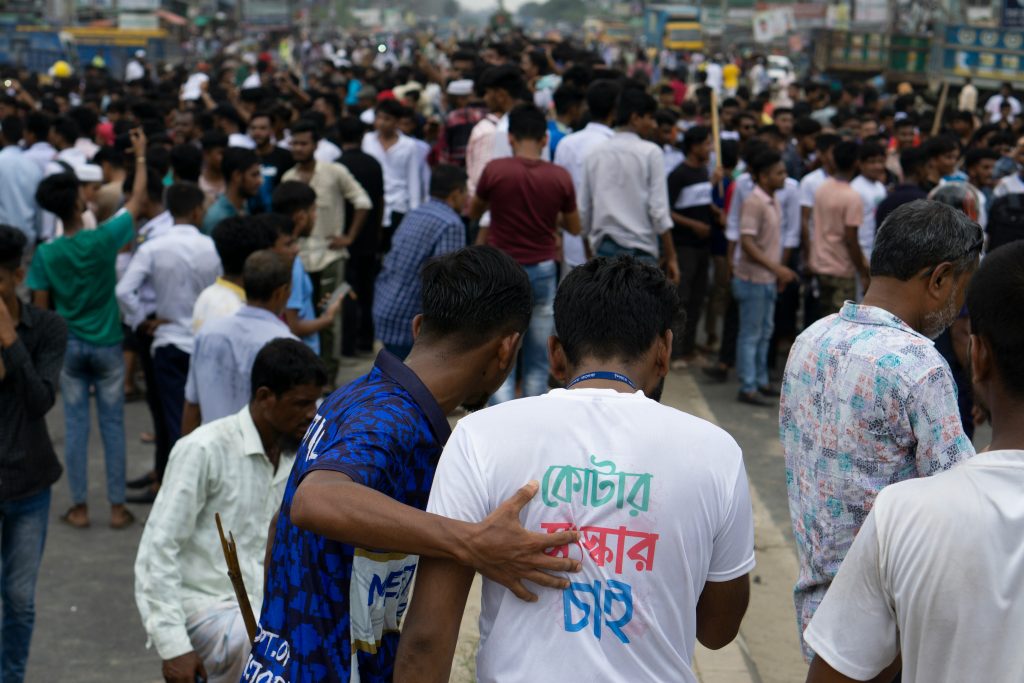Pete Buttigieg Takes Center Stage at DNC, Critiques Republican Leadership
At the 2024 Democratic National Convention in Chicago, U.S. Transportation Secretary Pete Buttigieg captivated the audience with a blend of personal anecdotes and sharp political critiques. Addressing the attendees on the third night of the convention, Buttigieg emphasized the significance of the Democratic Party’s values in contrast to the Republican ticket led by former President Donald Trump and his newly announced running mate, Senator JD Vance.
Buttigieg’s speech resonated with many as he painted a picture of the stark differences between the two parties. He shared a heartfelt moment about his family life, illustrating how political decisions impact everyday Americans. “Dinnertime conversations in my household are filled with discussions on the future, on infrastructure, on the safety of our roads. These are not just policies; they are our lives,” he remarked, effectively connecting with the audience on a personal level.
In a pointed critique of the Republican leadership, Buttigieg did not shy away from expressing his concerns regarding Trump’s influence and Vance’s alignment with the former president’s viewpoints. He stated that Trump’s selection of Vance as a running mate sends a troubling message to the American people. Buttigieg characterized Vance as emblematic of a political strategy that prioritizes division over unity, saying, “This is a ticket that thinks if they can just double down on the same old tactics, they can win over the American people. But we know better.”
His remarks were not just a defense of Democratic values but also a rallying cry for unity within the party. Buttigieg called upon Democrats to remain steadfast and energized as they head into the critical election season. He underscored the importance of presenting a cohesive front to ensure that the progress made in recent years is not reversed by a return to Trump-era policies.
As one of the Democratic Party’s most prominent figures, Buttigieg’s role at the DNC signifies his rising influence and the trust placed in him to convey the party’s message. His ability to articulate complex issues in relatable terms has made him a key asset for the Democrats. The convention serves as a platform for leaders like Buttigieg to not only inspire party faithful but also to reach out to undecided voters who may be disillusioned by the current political climate.
The DNC continues to serve as a backdrop for showcasing the party’s vision for the future, with Buttigieg standing at the forefront, advocating for a message of hope and resilience. As the election nears, his call for action resonates, reminding everyone of the stakes involved and the importance of making informed choices at the ballot box. With leaders like Buttigieg championing the cause, Democrats are gearing up for a robust campaign season, emphasizing unity, progress, and a commitment to the American people.
Tags: Democratic Party, DNC, Pete Buttigieg, Republican Leadership
Hillary Clinton: A Symbol of Resilience and Icon Status Among Young Democrats
In recent years, Hillary Clinton has transcended her role as a political figure and emerged as a symbol of resilience for a new generation of Democrats. During the Democratic National Committee (DNC) events, her presence has been met with a palpable sense of admiration and reverence, particularly from young voters who are coming of age in a politically charged climate.
Hillary’s journey has been marked by significant milestones, from her initial forays into public service to her historic candidacy for president. Each step has shaped her into not just a politician, but an emblem of perseverance against the odds. Her ability to navigate the complexities of American politics has resonated deeply with many young people who view her as a trailblazer who has faced challenges head-on.
At the DNC, Clinton’s speeches and interactions with attendees have sparked conversations about the future of the Democratic Party and the role of women in politics. Young Democrats, many of whom are first-time voters, are inspired by her story, which is a testament to breaking barriers. As they reflect on her career, they see not only a leader but also an advocate for issues that matter to them, such as women’s rights, healthcare, and social justice.
This phenomenon of icon status can be attributed to several factors. First, Clinton’s narrative is inherently relatable to many young voters who have grown up witnessing the shifting tides of American politics. They have seen her confront adversity and maintain her commitment to public service, which instills a sense of hope and possibility.
Moreover, the current political landscape has made Clinton’s experiences more relevant than ever. The ongoing discussions around gender equality, representation, and leadership resonate with younger generations who are eager to see change. Clinton embodies the fight for these values, making her a powerful figure in the eyes of many.
As the DNC continues to evolve, so too does the perception of Clinton among the party’s younger members. She is no longer just a former First Lady or a presidential candidate; she is a beacon of what can be achieved through dedication and hard work. Her advocacy for progressive policies aligns with the priorities of young voters, further solidifying her status as an icon within the Democratic Party.
In conclusion, Hillary Clinton’s influence on young Democrats at the DNC is a reflection of her resilience and the changing dynamics of political engagement among the youth. As they look to the future, her journey serves as a reminder that perseverance in the face of adversity can lead to meaningful change. With her continued involvement in politics and advocacy, Clinton is poised to remain a significant figure for generations to come, inspiring young leaders to follow in her footsteps and champion the values they hold dear.
Tags: Democratic Party, Hillary Clinton, Women in Politics, youth engagement
Governor Shapiro Defends His Record Amidst Political Attacks from Trump
In a charged political atmosphere, Pennsylvania Governor Josh Shapiro has emerged as a prominent figure, particularly in light of recent attacks from former President Donald Trump. During a speech at the Democratic National Convention (DNC), Shapiro’s remarks were met with criticism from Trump, who labeled him a “highly overrated Jewish Governor”. This comment, characterized by many as a veiled antisemitic trope, sparked a response from Shapiro, who firmly rejected the former president’s narrative, emphasizing the importance of freedom and inclusivity within the Democratic Party.
Shapiro’s speech was significant not only for its content but also for its timing, as the nation grapples with a series of protests related to the Israel-Palestine conflict. Many Republican leaders have reportedly aimed to leverage these demonstrations to sway Jewish voters towards their party, a tactic that Shapiro and others in the Democratic camp have decried as opportunistic. Shapiro’s defense of his political positions highlights a broader strategy among Democrats to reaffirm their commitment to Jewish communities, especially in the context of rising antisemitism.
In his response to Trump, Shapiro stated, “The GOP nominee’s attempts to undermine my commitment to Israel and the Jewish people are not only false but also dangerous. We must stand united against hate in all its forms.” His remarks underscore a growing rift between the two parties regarding support for Israel, with Democrats often emphasizing a more nuanced approach that includes advocating for Palestinian rights alongside Israeli security.
As the political landscape evolves, Shapiro has also been viewed as a potential candidate for Vice President Kamala Harris’ running mate in the upcoming 2024 election. His visibility on the national stage has positioned him as a key player in the Democratic Party, and his responses to Trump’s provocations may play a crucial role in shaping voter perceptions in Pennsylvania, a pivotal swing state.
The GOP’s criticisms of Shapiro reflect a broader strategy aimed at discrediting Democratic leaders by framing them as out of touch with their constituents. Trump’s assertion that Shapiro supports Harris, who he claims “hates Israel,” attempts to paint the Democrats as divided on crucial issues that resonate with Jewish voters. Shapiro’s firm rebuttal serves to clarify his stance and reinforce his commitment to fostering a dialogue that respects both Jewish and Palestinian perspectives.
As the election season heats up, Shapiro’s ability to navigate these complex issues while maintaining his political integrity will be crucial. His focus on freedom, equality, and the importance of standing against hate may resonate with a diverse electorate that is increasingly concerned about the implications of divisive rhetoric.
In conclusion, Governor Josh Shapiro’s recent exchanges with former President Trump reflect a significant moment in the ongoing battle for the hearts and minds of voters in Pennsylvania and beyond. As both parties prepare for a contentious election cycle, the stakes have never been higher for leaders like Shapiro, who are dedicated to combating hate while championing the values of freedom and justice for all.
Tags: 2024 election, antisemitism, Democratic Party, Donald Trump, Josh Shapiro
Nancy Pelosi Hails Biden’s Presidency as a Milestone at Democratic National Convention
In a spirited address at the Democratic National Convention, former House Speaker Nancy Pelosi expressed her heartfelt appreciation for President Joe Biden, heralding his tenure as one of the most successful presidencies in modern history. Speaking to a crowd that erupted in cheers, Pelosi’s enthusiasm for the Biden administration was palpable, despite the challenges that have shaped the current political landscape.
Pelosi opened her speech with a tone of gratitude, reflecting on the significant achievements of Biden’s presidency, which she believes have set a new standard for leadership during turbulent times. Drawing attention to the administration’s efforts in advancing social justice and economic recovery, she emphasized the importance of unity within the party as they approach the upcoming elections.
The former Speaker also took the opportunity to commend Vice President Kamala Harris for her unwavering commitment to reproductive rights, highlighting the critical roles that both Harris and Minnesota Governor Tim Walz play in advocating for voting rights. Pelosi’s remarks underscored a key theme of the convention: the necessity of progress in the face of adversity and the importance of protecting the democratic process.
Pelosi’s commanding presence at the convention further solidified her influence within the party, as she articulated a vision for the future that resonates with many Democrats. Her ability to galvanize support and inspire action was evident, signaling that her leadership continues to be a vital asset for the Democratic Party.
The event, held in Chicago, served as a platform for party members to rally together and prepare for the challenges ahead. Pelosi’s speech, rich with enthusiasm and determination, encapsulated the spirit of resilience that permeated the convention, drawing attendees together in a collective commitment to uphold their values and fight for a better future.
As the convention progressed, it became increasingly clear that Pelosi’s endorsement of the Biden administration would play a crucial role in energizing the base, as she called upon attendees to embrace the successes achieved thus far while remaining vigilant against the threats that loom on the horizon. The atmosphere was electric, with supporters expressing their excitement for the upcoming election cycle.
While the focus was largely on Biden’s achievements, Pelosi also acknowledged the work that remains to be done, particularly in areas such as healthcare, climate change, and social equity. Her call to action resonated deeply with the audience, urging them to not only celebrate victories but also to recognize the ongoing challenges that require their attention and activism.
The evening culminated in a palpable sense of hope and determination, with Pelosi’s words echoing through the halls of the convention center, reminding everyone present that the fight for democracy is far from over. As the Democratic Party gears up for the elections, Pelosi’s leadership and vision are likely to remain at the forefront of their strategy, embodying a commitment to progress and unity that will be essential in the months to come.
With key issues at stake, the Democratic National Convention has positioned itself as a launching pad for a renewed focus on the values that unite the party and a rallying cry for supporters across the nation. Pelosi’s address served not only as a reminder of past achievements but also as a clarion call for future action, setting the stage for a dynamic electoral battle ahead.
Tags: Biden Administration, Democratic Party, Nancy Pelosi
Bill Clinton’s Enduring Legacy Shines at DNC
On the third night of the Democratic National Convention in Chicago, former President Bill Clinton captivated the audience with his powerful address, reflecting on the party’s journey and the importance of unity in the current political landscape. Clinton, a seasoned veteran of political conventions, expressed his gratitude towards President Biden for his unwavering dedication to the nation. He also highlighted the significant role of Vice President Kamala Harris, praising her vision and experience as essential for navigating the challenges ahead.
Clinton’s presence at the DNC is not just about nostalgia; it signifies the wisdom that comes with age in politics. Over four decades, he has been a prominent figure at various conventions, showcasing his ability to connect with voters across generations. His speech resonated with many, emphasizing the need for Democrats to rally together and to focus on the working-class issues that matter most to Americans.
Interestingly, Clinton’s age, which once posed a concern for some, is now seen as an asset. His seasoned perspective offers a contrast to the younger leaders in the party, allowing him to articulate the party’s message with clarity and conviction. Even political adversaries like Newt Gingrich acknowledge Clinton’s unique ability to engage with voters, particularly those feeling disconnected from the political process.
As he stood on the stage, Clinton evoked memories of his own political rise and the lessons learned along the way. His tenure in office, marked by both achievements and challenges, serves as a reminder of the complexities of governance and the importance of perseverance. The former president’s remarks included a call to action for the party to embrace its roots while also looking forward to a future that prioritizes progress and inclusivity.
In a political climate fraught with division, Clinton’s message of hope and unity is particularly poignant. His ability to distill complex issues into relatable narratives has earned him the title of ‘explainer in chief,’ a moniker he embraced during the Obama administration. His insights into the political process and the importance of grassroots engagement are crucial for energizing the base and attracting undecided voters.
As the DNC progresses, Clinton’s address serves as a powerful reminder of the enduring values of the Democratic Party. The former president’s legacy is not just defined by his time in office, but also by his ongoing commitment to public service and civic engagement. With the upcoming elections on the horizon, Clinton’s words will undoubtedly resonate as Democrats seek to forge a path forward that honors their past while striving for a brighter future.
Ultimately, Bill Clinton’s appearance at the DNC is more than just a nostalgic nod to the past; it is a clarion call for unity, resilience, and a renewed commitment to the core values that define the Democratic Party. As he inspires the crowd, it becomes clear that age, when coupled with experience and vision, can serve as a powerful tool for political advocacy and leadership.
Tags: Bill Clinton, Democratic Party, DNC, How old is bill Clinton, Kamala Harris, Political Legacy
Buttigieg’s Bold Address at DNC: A Call to Action Against Republican Policies
In a powerful and passionate address during the Democratic National Convention, Transportation Secretary Pete Buttigieg took the stage on the third night, setting the tone for a spirited defense of Democratic values against the backdrop of the upcoming election. Buttigieg, known for his eloquence and sharp political acumen, seized the opportunity to critique the Republican presidential ticket, particularly focusing on the implications of former President Trump’s choice of Senator JD Vance as a running mate.
Buttigieg emphasized that this choice sends a troubling message, one that reflects a doubling down on divisive politics and policies that he argues are detrimental to the American people. He articulated his vision for a more inclusive and progressive future, urging voters to consider the stakes involved in the upcoming election. “We are at a crossroads,” Buttigieg declared, as he rallied supporters to embrace a vision that prioritizes unity and progress over division and regression.
As he addressed the crowd, Buttigieg did not shy away from highlighting the achievements of the Biden administration in the realm of transportation and infrastructure, showcasing how these advancements have positively impacted communities across the nation. He linked these successes to broader Democratic goals, painting a picture of a party committed to improving the lives of all Americans, contrasting sharply with the Republican agenda.
His speech not only served as a critique of the opposing party but also as a rallying cry for Democrats to stand firm in their beliefs and fight for the values they hold dear. Buttigieg’s charisma and commitment resonated with attendees, creating a sense of urgency and motivation as they prepare for the challenges ahead.
Furthermore, Buttigieg’s presence at the DNC was symbolic of a new generation of leaders within the Democratic Party, who are eager to take on the mantle of responsibility and drive meaningful change. As he spoke just before Tim Walz’s acceptance of the vice-presidential nomination, his words echoed a shared commitment among Democratic leaders to present a united front against the threats posed by their Republican counterparts.
In summary, Pete Buttigieg’s address at the DNC was not just another political speech; it was a clarion call to action, urging Americans to recognize the significance of their vote and the direction in which they want to steer the nation. With a focus on unity, progress, and a rejection of divisive politics, Buttigieg effectively galvanized support for the Democratic ticket, setting the stage for a passionate and competitive election season ahead.
Tags: Buttigieg, Democratic Party, DNC, Pete Buttigieg, Republican Critique
Excitement and Caution at DNC as Key Speakers Address the Crowd
As the Democratic National Convention (DNC) unfolds in Chicago, an electrifying atmosphere enveloped the event on its third night. Former President Bill Clinton made a notable appearance, where he lauded the ongoing efforts of President Biden and highlighted the significance of Vice President Kamala Harris in the upcoming elections. Clinton, with his decades of experience in political arenas, urged party members to remain vigilant and avoid complacency as they gear up for the 2024 elections against Republican contender Donald Trump.
In his speech, Clinton reminded the audience of the accomplishments achieved under Biden’s leadership, reinforcing the message that continuity and experience are paramount in the current political climate. He praised Harris, emphasizing her role as a driving force for positive change and inspiration within the party. “Kamala has the ability to lead this country forward,” he stated, capturing the attention of delegates who eagerly listened to his insights.
Meanwhile, Minnesota Governor Tim Walz, who has been selected as Harris’s running mate, took to the stage, representing a new wave of leadership within the Democratic party. His acceptance of the vice presidential nomination marked a significant moment in the convention, as he articulated a vision for the future that resonates with the party’s core values. Walz’s emphasis on unity and collaboration reflects the party’s strategy to build on the momentum gained since Harris joined the race just a month ago.
The DNC’s theme for the night, “Fight For Our Future,” resonates deeply with the delegates, as they seek to motivate voters across the nation. Clinton cautioned against underestimating the challenges ahead, reminding attendees that politics is often a brutal arena where complacency can lead to defeat. His remarks served as a rallying cry for the party to harness their collective energy and focus on the issues that matter most to the American people.
As the convention continues, the Democratic party is strategically positioning itself to capitalize on the strengths of its leadership. The upcoming elections are not merely a contest of candidates but a pivotal moment for the party to reinforce its commitment to progress and inclusivity. The speeches delivered are not just about celebrating past achievements but about igniting a passion for future endeavors.
The DNC’s approach this year reflects a blend of seasoned experience and fresh perspectives, aiming to appeal to a diverse electorate. With figures like Clinton and Walz at the forefront, the party is making a concerted effort to connect with voters on both emotional and practical levels. The narrative being crafted is one of resilience, determination, and a clear vision for what lies ahead.
As the night concluded, the delegates left the venue energized, ready to take on the challenges of the campaign trail. The DNC stands firm in its belief that with strong leadership and a united front, they can navigate the tumultuous waters of American politics and emerge victorious in the forthcoming elections.
Tags: Bill Clinton, Democratic Party, DNC 2024, Kamala Harris, Tim Walz
Tim Walz: The Rising Star of the Democratic Ticket
In a significant political development, Minnesota Governor Tim Walz has stepped into the national spotlight as he joins Vice President Kamala Harris on the Democratic presidential ticket. This unexpected pairing has captured the attention of political analysts and voters alike, as Walz’s authentic and progressive voice resonates with many across the nation.
Walz, who previously served in Congress representing a traditionally Republican district, has made a name for himself as a pragmatic leader with a focus on unity. His tenure as governor has been marked by his ability to address complex issues while maintaining a relatable presence. At a recent rally in Pennsylvania, he joined Harris on stage, where they rallied supporters against their Republican opponents, emphasizing the importance of winning swing states like Pennsylvania in the upcoming election.
Critics have raised concerns regarding Walz’s handling of a significant COVID-19 fraud scheme during his time as governor. However, his supporters argue that his leadership during the pandemic, including the implementation of health measures and support for economic recovery, showcases his commitment to the welfare of Minnesotans.
As the Democratic ticket looks to solidify its stance on pressing issues, Walz’s experience in both education and public service positions him as a candidate who can connect with voters on a deeper level. His background as a former civics teacher adds a unique perspective to the conversation about government reform and civic engagement.
The recent announcement has prompted discussions about the Democratic Party’s approach to foreign policy, particularly in light of ongoing global tensions. As Walz and Harris prepare for the campaign trail, their positions on issues such as the Israel-Palestine conflict, relations with Russia and Ukraine, and strategies regarding China will be closely scrutinized.
Walz’s rise to prominence has been a point of amusement for some on the political left, who see his ability to articulate progressive ideas with authenticity as a refreshing change. His journey from a lesser-known state governor to a key player on the national stage exemplifies the shifting dynamics within the Democratic Party, as they seek to appeal to a broader electorate.
As the election approaches, Walz’s ability to draw in voters from diverse backgrounds may prove crucial for the Democratic campaign. With his military service and personal story, he embodies the values of resilience and determination that resonate with many Americans. Both he and Harris are set to make a concerted effort to connect with voters, emphasizing a message of hope and progress.
In conclusion, Tim Walz’s selection as Kamala Harris’s running mate marks a pivotal moment for the Democratic Party. His authentic leadership style, combined with a progressive agenda, positions him as a formidable candidate capable of galvanizing support across the country. As they embark on this electoral journey together, the nation will be watching closely to see how this dynamic duo navigates the complexities of the political landscape and strives to unite voters in pursuit of a common goal.
Tags: Democratic Party, Election 2024, Kamala Harris, Minnesota, Minnesota Governor, Tim Walz, Walz
The Rising Star of Pennsylvania: A Look at Governor Josh Shapiro’s Vice Presidential Vetting Journey
In a political landscape often marked by surprises, Pennsylvania Governor Josh Shapiro has emerged as a significant player in the national arena, recently undergoing an intense vice presidential vetting process. This journey has not only showcased his deep ties to the Democratic Party but also highlighted aspects of his life that resonate with many voters across the United States. Shapiro, who has been a prominent figure in Pennsylvania politics, is a beacon of hope for many within the Jewish American community. His story is often described as the embodiment of the American Dream, reflecting resilience and determination in the face of challenges. However, his potential candidacy for the vice presidency has stirred mixed feelings among Democratic supporters. Some believe that nominating Shapiro could divert attention from key issues that the party needs to focus on as they head into the next election cycle. The vetting process has also revealed Shapiro’s unique experiences, including his time as a volunteer with the Israel Defense Forces (IDF), which adds a layer of complexity to his public persona. Shapiro has consistently positioned himself as a unifier, advocating for progressive policies while also bridging divides within the party. This balancing act has garnered both admiration and skepticism, particularly from core Democratic constituencies who have raised concerns over his positions on contentious issues such as school vouchers and campus protests. As the political landscape continues to evolve, the implications of Shapiro’s vice presidential candidacy could be substantial. If selected, he would not only bring a fresh perspective to the ticket but could also play a pivotal role in shaping the Democratic agenda moving forward. Pennsylvania, as a swing state, holds significant electoral weight, and Shapiro’s candidacy could energize voters and create a pathway for substantial political change. While some supporters are rallying behind the notion of a Shapiro-Harris ticket, others caution that such a move might distract from pressing national concerns that need immediate attention. As the Democratic Party prepares for a potentially fierce election cycle, the conversation surrounding Josh Shapiro’s political future remains dynamic and fraught with implications for both the state of Pennsylvania and the nation as a whole. The path ahead for Shapiro is uncertain, yet his recent experiences underscore the importance of adaptability and resilience in modern politics. As he navigates these waters, one thing remains clear: Governor Josh Shapiro is a figure to watch in the coming months, as his decisions and actions could significantly influence the Democratic Party’s trajectory. His journey serves as a reminder of the complexities of political candidacy and the myriad factors that influence it, including personal history, party dynamics, and the broader electoral landscape.
Tags: Democratic Party, Josh Shapiro, Pennsylvania Politics, Vice Presidential Vetting
Cori Bush Faces Intense Primary Challenge in Missouri
In a highly anticipated primary election, Democratic Congresswoman Cori Bush is bracing for a fierce battle against her challengers, particularly St. Louis County Prosecutor Wesley Bell. As the political landscape shifts, Bush’s candidacy has become a focal point of contention among voters in Missouri. With the primary drawing near, the stakes have never been higher for the progressive representative, who has garnered both fervent support and vocal opposition. Bell, a well-known figure in the community, has mounted a formidable campaign, backed by significant financial resources and a substantial advertising blitz, which has heightened tensions in the race.
The primary is not only a critical moment for Bush but also a reflection of broader political dynamics within the Democratic Party. As established political figures and new challengers vie for influence, this contest has emerged as one of the most closely watched races. The involvement of pro-Israel lobbying groups, specifically AIPAC, has added another layer of complexity to the electoral landscape, indicating the race’s significance on both local and national fronts.
Bush, who gained prominence for her outspoken advocacy on issues such as racial justice and healthcare reform, faces the challenge of mobilizing her base while countering the substantial support Bell has garnered. The contrasting visions for the future of the district resonate with voters, making it essential for Bush to articulate her achievements and plans clearly. The election will serve as a referendum on her tenure and the progressive policies she champions.
With the primary election date approaching, both candidates are ramping up their efforts to connect with constituents. Bush’s campaign emphasizes her commitment to the community and the legislative victories she has achieved since taking office. In contrast, Bell’s camp seeks to portray him as a unifying figure capable of bridging divides within the party and appealing to a broader electorate.
As voters prepare to make their decisions, the implications of this primary extend beyond Missouri. The outcome may influence the direction of the Democratic Party, particularly as it navigates the challenges of maintaining unity amid differing ideological factions. Furthermore, the race underscores the growing influence of grassroots movements and the importance of campaign financing in shaping electoral outcomes.
In the coming days, all eyes will be on Missouri as the primary unfolds. Voter turnout will be critical, and both candidates will need to engage effectively with their constituents to secure a victory. The election serves as a crucial test of political resilience and the power of grassroots activism in the modern political arena. Regardless of the outcome, this primary is sure to leave a lasting impact on the future of the party and the representation of progressive values within Congress.
Tags: AIPAC, Cori Bush, Democratic Party, Missouri Primary, Wesley Bell






